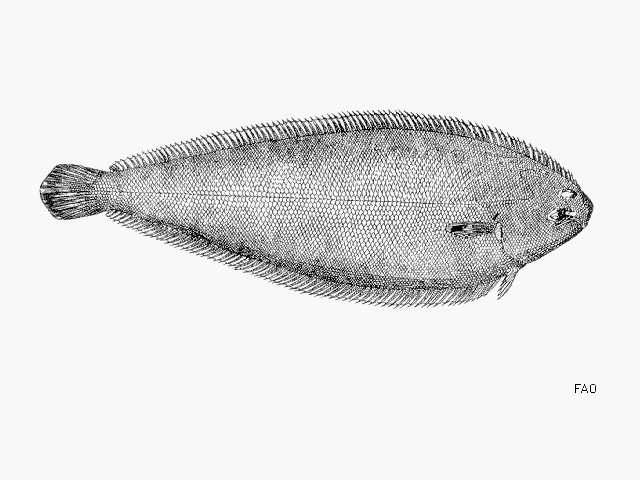| Soleidae (Soles) |
| 30 cm SL (male/unsexed) |
|
demersal; brackish; marine; depth range 10 - 460 m |
| Eastern Atlantic: Bay of Biscay and the Mediterranean to the Cape of Good Hope, South Africa. |
|
Dorsal spines (total): 0-0; Dorsal soft rays (total): 81-90; Anal spines: 0-0; Anal soft rays: 65-77; Vertebrae: 43-45. Brownish grey with small dark spots; pectorals blackish with pale margin (Ref. 3200). |
| Inhabits mainly sandy or sand-mud bottoms (Ref. 27121). Feeds on a wide range of small bottom-living organisms, mainly crustaceans, polychaete worms, bivalve mollusks, etc. (Ref. 4710). Oviparous (Ref. 205). Eggs are pelagic and non-adhesive (Ref. 205). Minimum depth reported from Ref. 27121. |
|
Least Concern (LC); Date assessed: 29 June 2021 Ref. (130435)
|
| harmless |
Source and more info: www.fishbase.org. For personal, classroom, and other internal use only. Not for publication.
